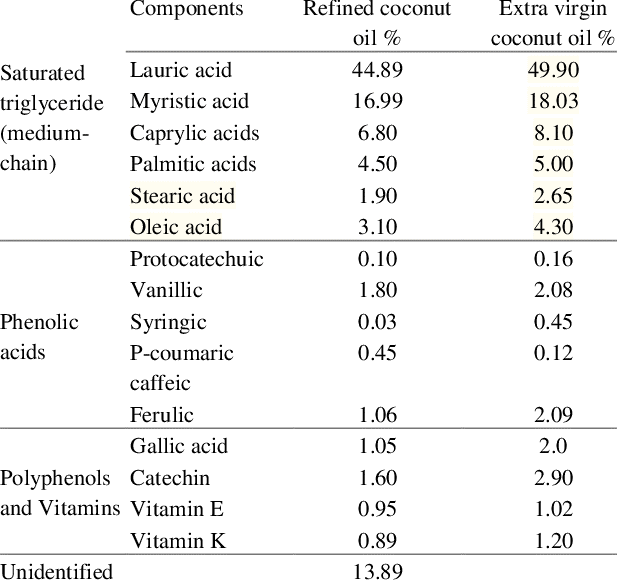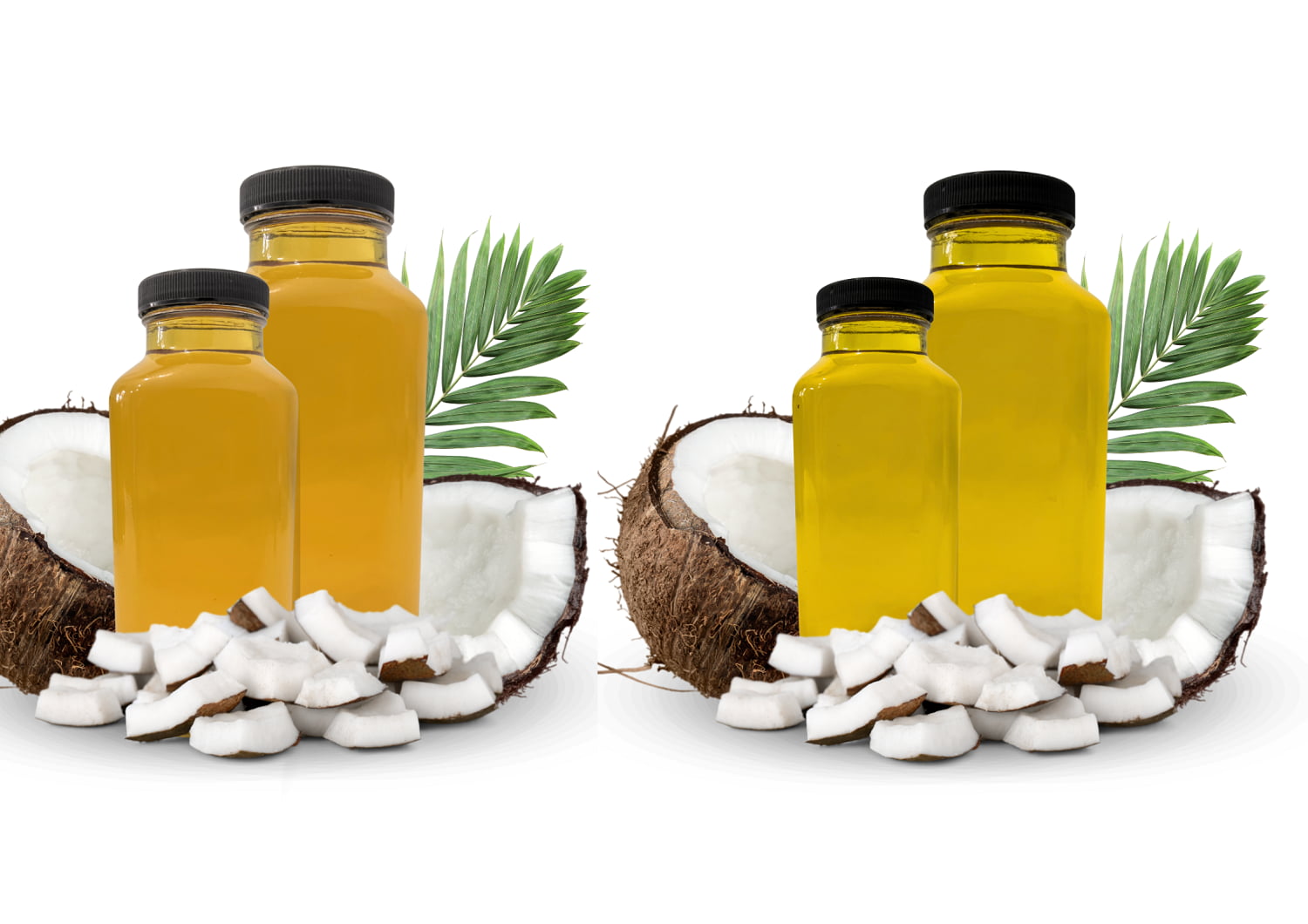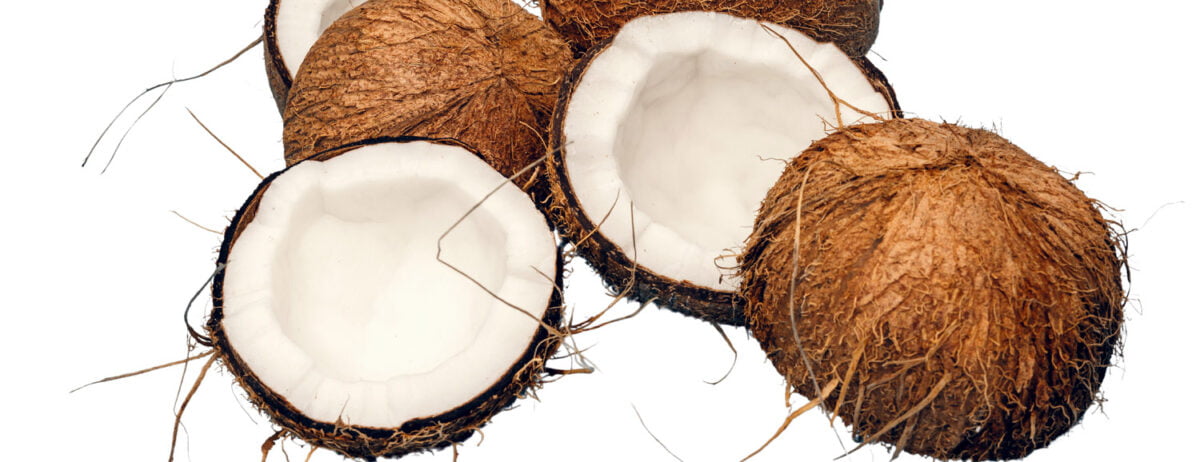Useful Informaiton
THE COMPONENTS OF VIETNAMESE COCONUT OIL
Coconut oil, derived from coconut meat, is a widely utilized ingredient in the global food, medical, and beauty industries. Its durability, attributed to a high level of saturated fat, allows it to maintain quality for up to two years. The increasing interest in natural products, particularly beauty oils, has brought coconut oil into the spotlight. Recognized for its antibacterial, antifungal properties, and outstanding moisturizing capabilities, it is gaining widespread acknowledgment.

To produce raw coconut oil, the manual cooking or pressing methods can be employed. It comprises essential components, including triacylglycerol, fatty acids, phospholipids, tocopherol, metals, sterols, volatile substances, mono, and diacylglycerol. Approximately 90% of its fatty acids are saturated, with lauric acid being the primary component at 47.5%.
The color of coconut oil is influenced by the extraction method: cold-pressed oil is colorless, while heat-extracted oil has a pale yellow hue.

At room temperature, coconut oil does not dissolve in water but emulsifies into a milky white mixture when vigorously stirred. This unique characteristic contributes to its versatility in culinary and beauty applications.
———————————————————————————————————————————
Thanks for talking time to visit my blog.

